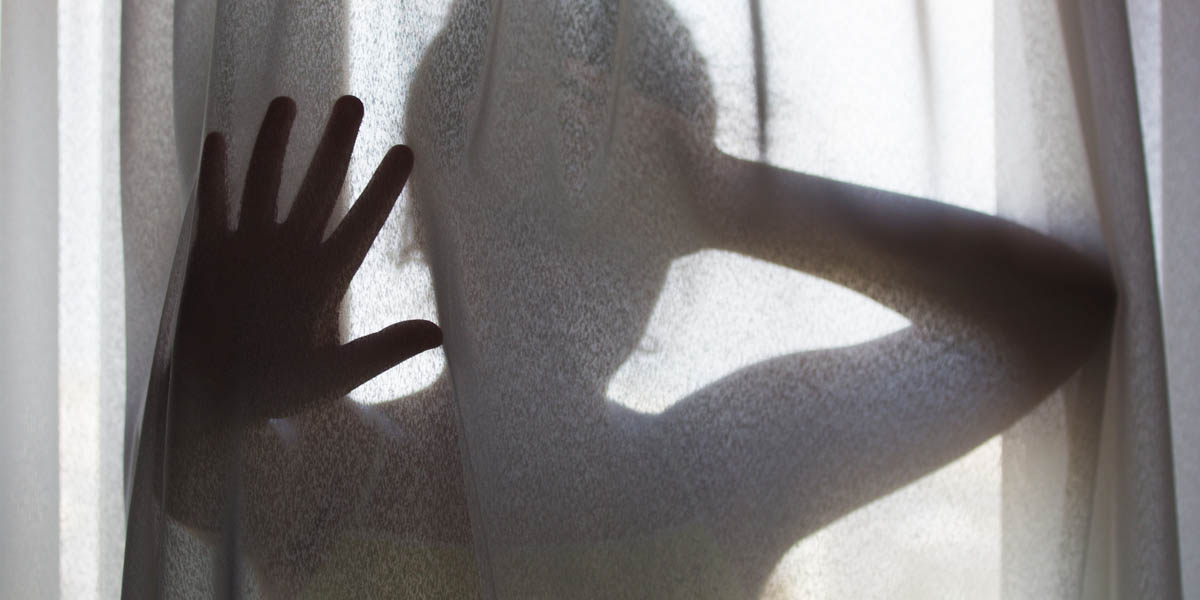If you lived through multiple traumatic events in your childhood, you might still be feeling their aftermath to this day. And while it may not seem like it, it’s common for people to see long-lasting effects, even into adulthood. You might be familiar with simple PTSD, but if you’re also experiencing additional symptoms, you could have complex PTSD (C-PTSD) stemming from childhood trauma.
First, it’s important to recognize that what happened to you isn’t your fault. Second, you’re not stuck feeling this way forever. Start your journey towards recovery by learning more about how you can holistically treat childhood trauma.
The Link Between Childhood Trauma and Complex PTSD
Childhood trauma is a result of experiencing a distressing event under the age of 18. That event then overwhelms your ability to cope. Common types of childhood traumatic events include verbal abuse, bullying or living in a community with violence. Unfortunately, childhood trauma is common, with two thirds of the population experiencing at least one traumatic event in their early years. These are known as adverse childhood experiences, or ACEs.
However, not every scary or painful experience from childhood is traumatic. And people might have trauma from something that somebody else doesn’t. For example, two siblings might grow up in the same environment with the same background of abuse or belittlement. But one might carry it differently into adulthood.
Having trauma, even if others around you do not, is not a personal failure. It’s just your body’s way of handling your past. Experiencing trauma in your childhood can lead to a lot of different outcomes down the line. Some people develop post-traumatic stress disorder (PTSD). But if you’ve dealt with complex trauma in your youth that has led to issues beyond the scope of simple PTSD, you could be living with complex PTSD.
Can Childhood Trauma Cause c-PTSD?
Childhood trauma that is repetitive or prolonged can lead to complex PTSD. C-PTSD is also more common when the traumatic situation is impossible or feels impossible to escape. For children, this piece is especially relevant because minors don’t have as much freedom to determine where they’re living and who they’re living with. For example, if they’re witnessing domestic violence, they can’t just remove themselves from the situation without an adult’s help.
The diagnosis of complex PTSD doesn’t come from the nature of the trauma, but a specific set of symptoms. People with c-PTSD usually have some or all of the simple PTSD symptoms like social isolation, nightmares and flashbacks. But they must also have these three additional symptoms to have complex PTSD:
- Issues with controlling emotions
- A negative self-view
- Difficulty starting and keeping healthy relationships
Studies show that childhood exposure to multiple adverse events is even more likely to lead to c-PTSD.
How Adverse Childhood Experiences (ACEs) Lead to c-PTSD
The more ACEs people have, the more likely they are to develop complex PTSD. But why?
Childhood is when we develop our personalities, emotion and impulse control and ideas about what healthy relationships look like. And trauma at a young age can create toxic stress, which can harm normal brain development.
This stressful environment can make it difficult to develop healthy emotional control, feelings about yourself, and relationships, which are all the symptoms of c-PTSD. You may not be able to form these healthy parts of your identity because of the ongoing nature of your trauma. And unfortunately, childhood trauma and c-PTSD can lead to other negative situations down the line.
Childhood Trauma, c-PTSD and Addiction
Childhood trauma and addiction go hand in hand for many people. It’s very common for people to use drugs or alcohol to cope with their trauma symptoms.
How ACEs Can Cause Both c-PTSD and Addiction
Chronic trauma in your early life can increase your risk for both complex PTSD and addiction. One reason for this link is the effect of trauma on brain development.
ACEs cause developmental changes that affect how you make decisions and handle stress. This means you might be more likely to try drugs in the first place. And, the toxic stress caused by ongoing trauma can alter the way you handle issues as you get older. Those changes in your stress responses can cause issues like depression and anxiety. In turn, depression and anxiety can lead to addiction later on in life.
Studies link specific types of childhood trauma to using substances. For example, living with a loved one who is addicted to drugs or alcohol not only increases your risk of trauma, but also of developing an addiction yourself.
Even in adulthood, living with complex PTSD can increase your risk of addiction.
Using Substances to Cope With c-PTSD Symptoms
Complex PTSD comes with symptoms that affect broad aspects of your life, like how you connect with the people and world around you. Those effects can be difficult to cope with if you don’t know how.Some people then start using substances to manage their symptoms.
One defining symptom of c-PTSD, for example, is trouble controlling emotions. A simple event might trigger an outburst. Or, on the opposite side of the spectrum, some feel completely numb, even to things that used to excite them. People might use substances to self-soothe their intensity or absence of feelings. Maybe smoking weed allows you to relax and not feel so emotional. Or, stimulants could bring energy back into your life.
In the moment, these quick fixes may help you feel better. But in the long run, they make things much worse. That’s why it’s important to get to the bottom of your c-PTSD symptoms by healing your childhood trauma.
Resolve Your Childhood Trauma to Treat Complex PTSD
There’s good news for people with complex PTSD from a traumatic childhood: healing is possible. And it’s not just about symptom management. By digging deep into your background, in a safe setting with professionals, you can resolve your trauma and start living your life to the fullest.
At The Sanctuary, we use a fully integrated, holistic treatment program that’s personalized to your and your concerns. We’ll work together as you:
- Identify your trauma and its effect on your life
- Change your narrative around these traumatic events
- Learn how to talk about and manage your emotions
- Develop healthier coping strategies
- Free yourself from your trauma
We know the brain is ever-changing, so even if your childhood trauma harmed your brain development, it doesn’t have to be permanent. It’s not too late to learn how to balance your emotions, or learn what a healthy relationship can look like.
Also, epigenetic modification, which is your ability to change your genetic expression through your environment and behaviors, can help reverse the effects of trauma on your brain. Through energy psychology, we can reduce the stress in our life that triggers our traumas. By doing this, we can correct our traumas genetically.
When you resolve, or correct, your childhood traumas, you can not only reduce your c-PTSD symptoms, but also heal from other issues like addiction. That’s why our holistic, non-12-Step addiction treatment program focuses on resolving your trauma. And by doing so, you can learn to live freely again.
Your Past Doesn’t Have to Affect You Forever
You can free yourself from your traumatic childhood. Even if it’s felt like a central part of your life until now, it doesn’t have to continue. You get to take back control of your life. And you can do it in the safety and comfort of nature and a caring community.
Contact The Sanctuary today to take that first step towards healing.

Kelley Alexander JD. is the co-director of The Sanctuary at Sedona and has worked over the last decade to develop its innovative Integrative Addiction Recovery Program that has helped hundreds of clients to be recovered from addiction and co-occurring disorders. Through her pioneering work, Kelley and her team at The Sanctuary also work with clients to overcome issues related to codependency, anxiety, depression, and PTSD. A JD and former practicing attorney, Kelley holds a BA in World Religions and has done graduate work in psychology. She is an ordained minister, certified shamanic breathwork facilitator, and a graduate of the Four Winds Healing The Light Body School, the premier energy medicine program founded by Alberto Villoldo. Kelley has also been a student of Dr. Joe Dispenza since 2009. She is a member of the Association for Comprehensive Energy Psychology and the Institute for Holistic Addiction Studies. She is a frequent lecturer at seminars and conferences throughout the United States.
[email protected]

